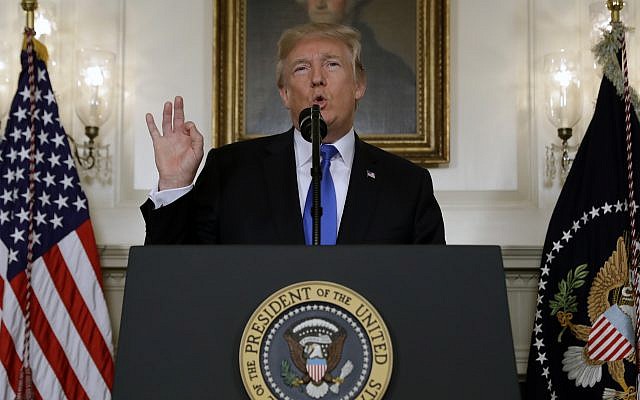Useita syitä ja taustoja sille miksi Mossad ei tappanut kaikkia korkeimpia natsipakolaisia... mielenkiintoista luettavaa.
LIKE CLOUDS AND WIND: A SECRET STUDY INTO MOSSAD'S FAILED NAZI HUNT
The Mossad is not just another intelligence agency like the CIA or MI6. It prides itself as the protector of Jews wherever they are, serving as the long arm of the Jewish people’s cry for justice.
A photo of Josef Mengele taken by police
On September 23, 1977, Menachem Begin, the feisty prime minister of Israel elected only four months earlier, convened his Security Cabinet for a secret meeting. After a short deliberation, it adopted a policy titled “Decision B/4.” To prevent leaks, only two copies were typed.
The ministers ordered the Mossad, the feared and respected Israeli espionage agency, to renew the hunt for Nazi war criminals,
“in order to bring them to trial in Israel; and if bringing them to trial will not be possible – to kill them.”
The Mossad drafted a list of 10 wanted Nazis with a special focus on Dr. Jozef Mengele, notorious for his ghoulish medical experiments on Jews in the Auschwitz death camp.
The list included the following names: Adolf Hitler’s deputy,
Martin Bormann; the Gestapo chief,
Heinrich Muller; Adolf Eichmann’s assistant,
Alois Brunner;
Horst Schumann, another doctor who conducted sterilization and castration experiments on Jews by means of X-rays at Auschwitz;
Walter Rauf, an SS engineer who developed the gas trucks that preceded the gas chambers;
Klaus Barbie, a Gestapo officer known as the “Butcher of Lyon”;
Franz Murer, known as the “Butcher of Vilnius” (Lithuania); and
Ernest Lerch, who directed the mass murder of the Jews of Lublin in Poland.
A photocopy of the cabinet decision has been retained in a secret study – a book written by the Mossad’s history department – which has never been published. I managed exclusively to obtain a copy of that book. Until now historians, researchers and journalists, based on clues and leaks, described how the Mossad tried to track down and assassinate Nazi war criminals. This is the first time that an official definitive version produced by the Israeli espionage agency itself has come to light.
The book covers a 30-year period, starting in 1960, in which the Mossad struggled to obtain and verify data on ten key Nazis. The interlocking missions took Israeli operatives, usually using false identities, to four continents: Europe, South America, Asia, and Africa. It is a story of intrigue, deception, psychological warfare, and assassination attempts – but also of negligence, errors and failures.
The study has a title: “Clouds and Wind, But No Rain: In the Footsteps of Nazi War Criminals Who Were Not Punished.” The author was inspired by the Old Testament – in this case, quoting Proverbs 25:14, “Like clouds and wind without rain.”
The Biblical verse refers to a situation in which there are hopes and expectations that something will happen, but then it doesn’t.
The title serves as testimony that the Mossad failed in its pursuit. That may be a surprise, given the mythology about the determination and invincibility of Israeli intelligence operatives – as well as the bravado of Israeli political leaders who talked about the need to punish the Nazis who perpetrated the Holocaust.
Intriguingly, these volumes do not include the most famous Nazi manhunt of all, which was a daring and clear success – the capture of
Adolf Eichmann (the Nazi bureaucrat in charge of the “Final Solution” to exterminate all of Europe’s Jews) in 1960, in Argentina. That mission has its own thick files in the Mossad archives, and some of the associated documentation – including relics such as a camera used by the Israeli kidnappers – have been released by the Mossad for public display in museums, films and books.
Also excluded from this research is a project that did end in assassination: the hunt for Nazi war criminal
Herbert Cukurs, a Latvian pilot who served as a general in the German SS. He was known as the Butcher of Riga, responsible for the murder of some 30,000 Latvian Jews.
Like many other Nazis, Cukurs escaped and found shelter in South America, where he ran a tourist venture flying tourists over the rain forest of the Amazons. The original Mossad plan was to send a hit team posing as tourists. They would hire him, kill him in mid-air, and dump his body. But Cukurs was suspicious and turned down the job. The Mossad eventually lured him to Uruguay with a bogus business offer and killed him there in 1965.
The operations in the book all failed. Some of the Nazis were no longer alive, and the Mossad was pursuing ghosts based on bad intelligence. Others were located, but as much as the Mossad hatched plots to capture or kill them, they somehow managed to stay beyond the reach of the Jewish state’s avengers.
Only Alois Brunner was slightly injured, twice, in 1961 and 1980, by letter bombs sent to his home in Damascus, where he lived and worked as a security consultant for the Syrian government. The Mossad book reveals that a 31-year-old Israeli spy, codenamed “Candle,” was planted in Syria’s capital in the early 1960s. He was sent there by his superior, Yitzhak Shamir, a future prime minister of Israel who in the 1950s and ’60s was in charge of the Mossad’s special operations unit code-named “Mifratz,” Hebrew for “bay.”
A nerve-wracking comedy of errors included a post office clerk giving the Israeli spy a hard time for mailing a thick envelope until he invented a return address, which he scrawled in the upper left corner.
In 1980, the top echelon of the Mossad secretly arrived in South America. This included the agency chief, Yitzhak Hofi, and Shabtai Shavit, who was then the head of the special operations department called Masada (also known as Caesarea) who would seven years later be the head of the Mossad. They came with a few operatives and members of a hit team armed with pistols. The plan was to kill, within 24 hours, both Barbie in Bolivia and Rauf in Chile.
However,
Rauf’s dog noticed the assassins and barked. They left and the two killing missions were aborted.
Adding extra poignancy to these stories of herculean efforts leading to disappointment, the author who compiled the narrative is himself a Holocaust survivor: Yossi Chen, who became a Mossad operative and was later tasked with writing this official history.
His research is based on original field reports by Mossad agents who took notes during their reconnaissance and assassination missions, plus after-action testimonies, photographs and drawings.
The study reveals that the spy agency did not do enough. Also, for 12 years after the killing of Cukurs, the Mossad suspended the manhunt. The topic was not really a high priority for the Mossad directors who have drawn praise for other accomplishments: Isser Harel, Meir Amit and Zvi Zamir. The Israeli prime ministers of the 1960s and ’70s, David Ben-Gurion, Levi Eshkol and Golda Meir, also showed little sign of caring – except for Ben-Gurion’s celebrating the capture of Eichmann.
The only one who showed real interest in hunting Nazis was Menachem Begin, who considered himself an adamant Jewish nationalist standing up for his people.
This internal Mossad study smashes a myth rooted in the public and media perception of Israeli spies as omniscient and omnipotent. But even more profoundly, as the world marveled and still marvels at the capture of Eichmann – “the Man in the Glass Booth” who was put on trial in Jerusalem, with sensational testimony by Holocaust victims, before he was hanged in 1961 – the universal assumption was that the Mossad would do everything in its power to trace, follow and then capture or kill Nazis.
After all, the Mossad is not just another intelligence agency like the CIA or MI6. It prides itself as the protector of Jews wherever they are, serving as the long arm of the Jewish people’s cry for justice. The Mossad represents and fights for the State of Israel – the homeland of Holocaust survivors. Every stone should have been turned over, every tiny clue pursued to the ends of the earth. But the Mossad study honestly admits that this didn’t happen.
All in all, the Nazi manhunt resulted in one war criminal (Eichmann) captured, one (Cukurs) assassinated and one (Brunner) injured. That is only
three out of the 12 most wanted Nazis, and 25 percent is a very low success rate.
The author of the study, Yossi Chen, does not conceal his bitter disappointment at the spotty record of his otherwise beloved agency. The hunt for Nazi war criminals ended in 1991. Chen sums it up by using that Biblical phrase: “Clouds and wind, but no rain.”
Yossi Melman is an Israeli security commentator and co-author of ‘Spies Against Armageddon.’ He blogs at www.israelspy.com and tweets at yossi_melman







 ?
?